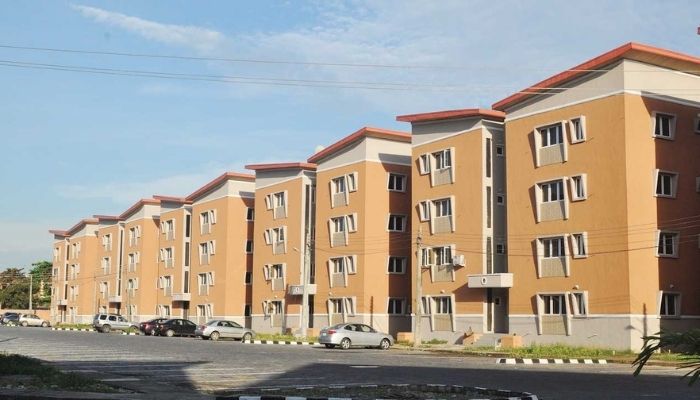Nigeria’s housing crisis with an estimated 28 million deficit continues to escalate as limited funding for local production stifles efforts to address the country’s growing demand for affordable homes.
The 2024 BuyLetLive Nigeria Property Price Index report revealed that absence of regulatory incentives for local production of building materials continues to exacerbate the housing crisis as heavy reliance on imported construction materials leaves the industry vulnerable to FX volatility and global inflationary pressures.
“With inadequate financial incentives and support, local manufacturers struggle to produce essential building materials at scale, resulting in increased reliance on costly imports,” the report stated.
“This not only drives up construction expenses but also limits the availability of affordable housing for millions of Nigerians, leaving many families in precarious living conditions.”
Throughout 2024, the Naira was largely unstable, with fluctuations driven by limited forex supply, speculative activities, and external economic factors.

The naira saw a 24.3 percent decline against the US dollar, falling from an exchange rate of N1,413: $1 at the start of the year to N1,757: $1 by the end of November, marking the highest level in over two decades, according to the National Bureau of Statistics.
This volatility further increased uncertainty in the real estate sector and foreign investors remain hesitant, as unpredictable currency movements erode investor confidence and complicate returns on investments.
TheBuyLetLive report revealed that this dynamic strained affordability for potential buyers and tenants, particularly in high-demand urban areas.
The rental market, heavily influenced by these currency fluctuations, has seen landlords adjusting rents to align with forex shifts, making dollar-pegged pricing more prevalent in prime locations.
Speaking to Lagos residents living on the mainland in locations like Yaba, Palmgroove, Gbagada, and Ketu, most of them lamented the 50 percent increase in house rent, while some said their landlords prefer to evacuate the current tenants to get new rental payments.
“I currently live at Jibowu, Yaba and the mini-flat apartment costs N1 million per year but now we are expected to pay N1.8 million or we evacuate,” Lilan said.
Moyosore added that the landlord of the one-room apartment she lives in at Gbagada told her to evacuate within a month’s notice so that he could find new tenants who are ready to pay N1 million instead of N500,000 per year, double the current price.
“As a Landlord in Lagos, most of the new apartments in Lagos that have been constructed from scratch or renovated cost more than double what we used in 2023 and early 2024. Recently, the cost of materials is leaving us with no choice to hike the rental prices,” Ademola Adeniyi said.
However, this housing crisis is also seen at other locations in Lagos Island and Nigeria at large, highlighting the pressing need for monetary policy interventions to stabilise the currency and foster a more favorable environment for real estate growth and investment.
BuyLetLive highlighted that to navigate these challenges, many developers are exploring cost-cutting measures such as sourcing alternative materials, optimising designs, and renegotiating supplier contracts.
“The situation underscores the need for government intervention, such as subsidising local material production, stabilising currency rates, and reducing import duties.
Without such measures, the real estate sector risks further slowdown, exacerbating the housing deficit and limiting economic growth in construction-dependent industries,” the report said.
According to the report, the Nigerian real estate market in the first quarter of 2025 experienced a cautious “wait-and-see” approach from investors, as they await clarity on the 2025 budget announcement and its subsequent execution.
This anticipation reflects investor interest in understanding how fiscal policies will shape the macroeconomic landscape and influence real estate demand.
Furthermore, the introduction of investor-friendly policies and gradual improvements in key economic indicators are expected to rekindle confidence, driving both local and foreign investment in the sector
Recognising this, developers and the government have intensified efforts to deliver affordable housing projects, with several initiatives under the Renewed Hope Project expected to reach completion within the year.



